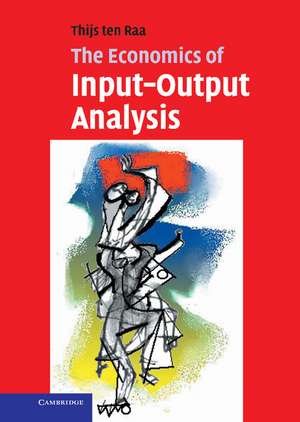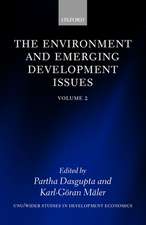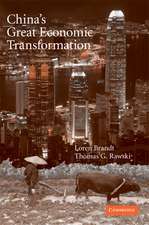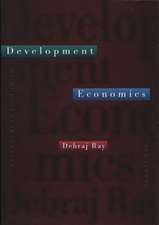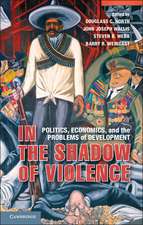The Economics of Input-Output Analysis
Autor Thijs ten Raaen Limba Engleză Hardback – 18 ian 2006
| Toate formatele și edițiile | Preț | Express |
|---|---|---|
| Paperback (1) | 374.88 lei 6-8 săpt. | |
| Cambridge University Press – 18 ian 2006 | 374.88 lei 6-8 săpt. | |
| Hardback (1) | 567.55 lei 6-8 săpt. | |
| Cambridge University Press – 18 ian 2006 | 567.55 lei 6-8 săpt. |
Preț: 567.55 lei
Preț vechi: 637.70 lei
-11% Nou
Puncte Express: 851
Preț estimativ în valută:
108.61€ • 113.25$ • 90.27£
108.61€ • 113.25$ • 90.27£
Carte tipărită la comandă
Livrare economică 21 martie-04 aprilie
Preluare comenzi: 021 569.72.76
Specificații
ISBN-13: 9780521841795
ISBN-10: 0521841798
Pagini: 212
Ilustrații: 17 tables
Dimensiuni: 170 x 244 x 13 mm
Greutate: 0.57 kg
Editura: Cambridge University Press
Colecția Cambridge University Press
Locul publicării:Cambridge, United Kingdom
ISBN-10: 0521841798
Pagini: 212
Ilustrații: 17 tables
Dimensiuni: 170 x 244 x 13 mm
Greutate: 0.57 kg
Editura: Cambridge University Press
Colecția Cambridge University Press
Locul publicării:Cambridge, United Kingdom
Cuprins
Preface; 1. Introduction; 2. Input-output basics; 3. Multiplier effects; 4. Linear programming; 5. Are input-output coefficients fixed?; 6. The system of national accounts; 7. The construction of technical coefficients; 8. From input-output coefficients to the Cobb-Douglas function; 9. The diagnosis of inefficiency; 10. Input-output analysis of international trade; 11. Environmental input-output economics; 12. Productivity growth and spillovers; 13. The dynamic inverse; 14. Stochastic input-output analysis.
Recenzii
'This book demonstrates the author's superior mastery and insights into the subject matter. Even those who have achieved mastery of input-output and linear programming analysis will find many valuable insights to add to their store of knowledge. This volume is a substantial addition to the literature.' William Baumol, New York University and Princeton University
'One great merit of this meticulous book is that it presents the input-output apparatus as a part of general equilibrium analysis, and therefore as part of mainstream economics rather than as just a free-standing technique. Another great advantage is that it connects up with the National Accounts at the other end. A careful student of this text will be thoroughly prepared to move on to applications.' Robert M. Solow, Department of Economics, MIT, and 1987 winner of the Nobel Memorial Prize in Economics
'Wassily Leontief defined and used input-output analysis in the modern era. He and his close followers took the subject far during the 20th century. Thijs ten Raa has taken the established system of economic analysis imbedded in input-output analysis and shown how it underlies the wide body of thought in the whole of the economy's supply side and production activities, both theoretical and applied, in a masterly treatment.' Lawrence R. Klein, University of Pennsylvania, and 1980 winner of the Nobel Memorial Prize in Economics
'One great merit of this meticulous book is that it presents the input-output apparatus as a part of general equilibrium analysis, and therefore as part of mainstream economics rather than as just a free-standing technique. Another great advantage is that it connects up with the National Accounts at the other end. A careful student of this text will be thoroughly prepared to move on to applications.' Robert M. Solow, Department of Economics, MIT, and 1987 winner of the Nobel Memorial Prize in Economics
'Wassily Leontief defined and used input-output analysis in the modern era. He and his close followers took the subject far during the 20th century. Thijs ten Raa has taken the established system of economic analysis imbedded in input-output analysis and shown how it underlies the wide body of thought in the whole of the economy's supply side and production activities, both theoretical and applied, in a masterly treatment.' Lawrence R. Klein, University of Pennsylvania, and 1980 winner of the Nobel Memorial Prize in Economics
Notă biografică
Descriere
A graduate-level textbook which surveys the most recent developments in input-output analysis and their applications.
